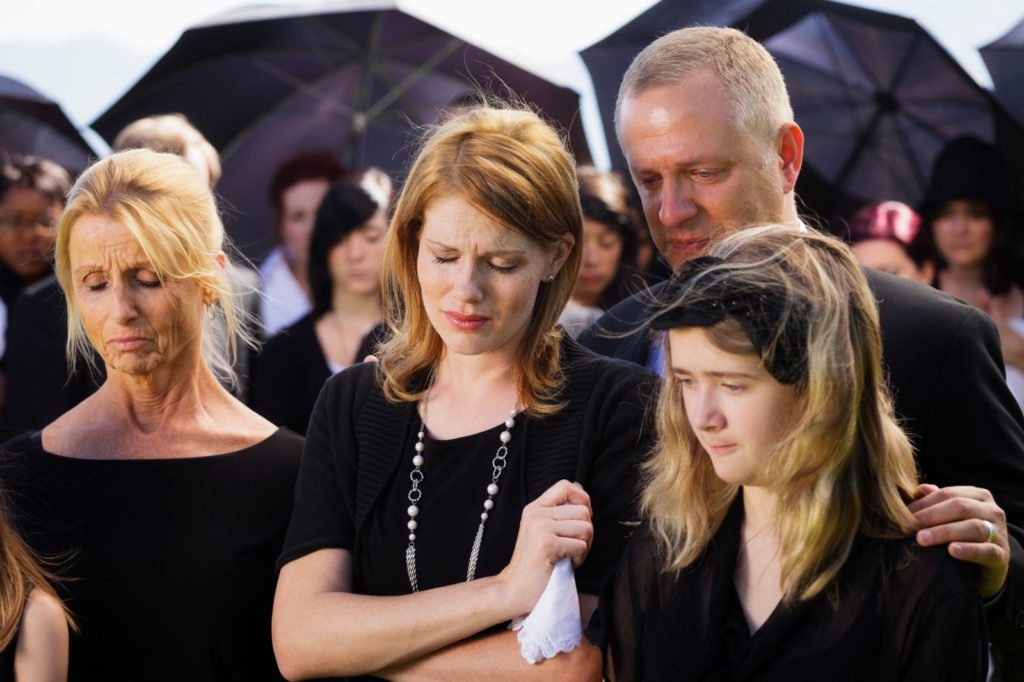The death of a loved one is always sad and upsetting. However, when it comes to grieving, the particulars of the loss are important. When it’s an expected loss – like the passing of someone who has long suffered through a painful and lingering disease, or the death of a grandparent or great-grandparent that’s had a long and happy life – the loved ones grieving are often able to arrive at acceptance and even peace within an expected time period. In those scenarios, we’ve often had the time to prepare for the loss. We’ve been able to resolve lingering issues and to say our goodbyes.
However, when the death is tragic and unexpected, like the loss of a child or adolescent, the grieving process can be quite different and more difficult. Whether they passed away due to a sudden illness, car accident or a death by suicide, the journey to healing is often a much longer one. MentalHealth.net points out that “the perceived fairness of the loss is also important. Losses that challenge our view of the world as a predictable and fair place are harder to manage.” Each time there is a death of a child or adolescent, it definitely “challenges our view of the world.”
So as parents, how can we cope and how can we help our children cope if a sibling or close friend passes away suddenly? Dr. Joshua Essery from Clarity Child Guidance Center offers us some general words of wisdom.
Do the five stages of grief still apply in the case of a tragic, sudden loss?
Dr. Joshua Essery: The five stages of grief are denial, anger, bargaining, depression and acceptance. People don’t always experience them linearly though. They may experience them in a different order or all at once. There’s not a typical response to loss;it’s a very individual process.
What kinds of emotions do the survivors of tragic loss experience?
Dr. Joshua Essery: It’s common for family members to feel responsible for the death, to feel guilt. They often go through a lot of “if/then” thinking and negotiations. “If I had noticed the signs, they would still be alive,”or, “If I hadn’t allowed them to do ‘x’ then they wouldn’t have died.”
What are some ways to process tragic loss?
Dr. Joshua Essery: Families should talk about the death, the feelings, the fears, the questions and the implied meanings about the loss. Allowing your child and family members to express feelings openly is important. And to understand that feelings are different than behaviors. Feelings just are.
What are some healthy ways to talk about a tragic loss?
Dr. Joshua Essery: Tell stories about the good times, the meaningful and memorable aspects that you’re going to carry into the future and remain in your life forever.
What if someone doesn’t appear to be grieving in an expected way?
Dr. Joshua Essery: It’s important to recognize people respond differently to loss. There are no right or wrong feelings. In fact, there could be no feelings at all. And that’s ok.
When going through the grieving process, are there any mistakes survivors can make?
Dr. Joshua Essery: The biggest risk is to pretend that nothing happened or to avoid recognizing the loss at all.
When survivors are a little further in the grieving process, how can they best honor their loved one?
Dr. Joshua Essery: Memorializing the person in some physical way is powerful. Expressing feelings through poetry or art is healing. Some families like to host a memorial dinner every year on their loved one’s birthday.
For those children that may be experiencing a sudden and tragic loss, The Children’s Bereavement Center of South Texas is a wonderfully helpful resource. This organization provides peer grief support groups for children, adolescents, young adults and their families that have experienced a death.
Whether we embrace it or not, loss in our lives is inevitable. It’s an absolute natural part of our journey as humans. The way we react to death has a lot to do with how we’re able to carry on and move forward. Will we be able to heal and grow from our loss? Or will we let the loss define who we are for the rest of our days? Dr. Essery points out, “Parents may use the opportunity to talk their child about something greater, allowing the loss to be a window to spiritual life and the importance of faith. “
Whether a death of a loved one is expected or sudden, it’s important that mourners take the steps they need to process the loss on their terms and in their own time. If, however, you feel that you or your child is stuck in the grieving process, then it’s important to seek out professional help. Clarity Child Guidance Center is a resource that can help guide your child through this difficult time. If they are dealing with depression, anxiety or other mental health needs as a result of the loss, please do not grieve alone – there is help and hope for the journey.










